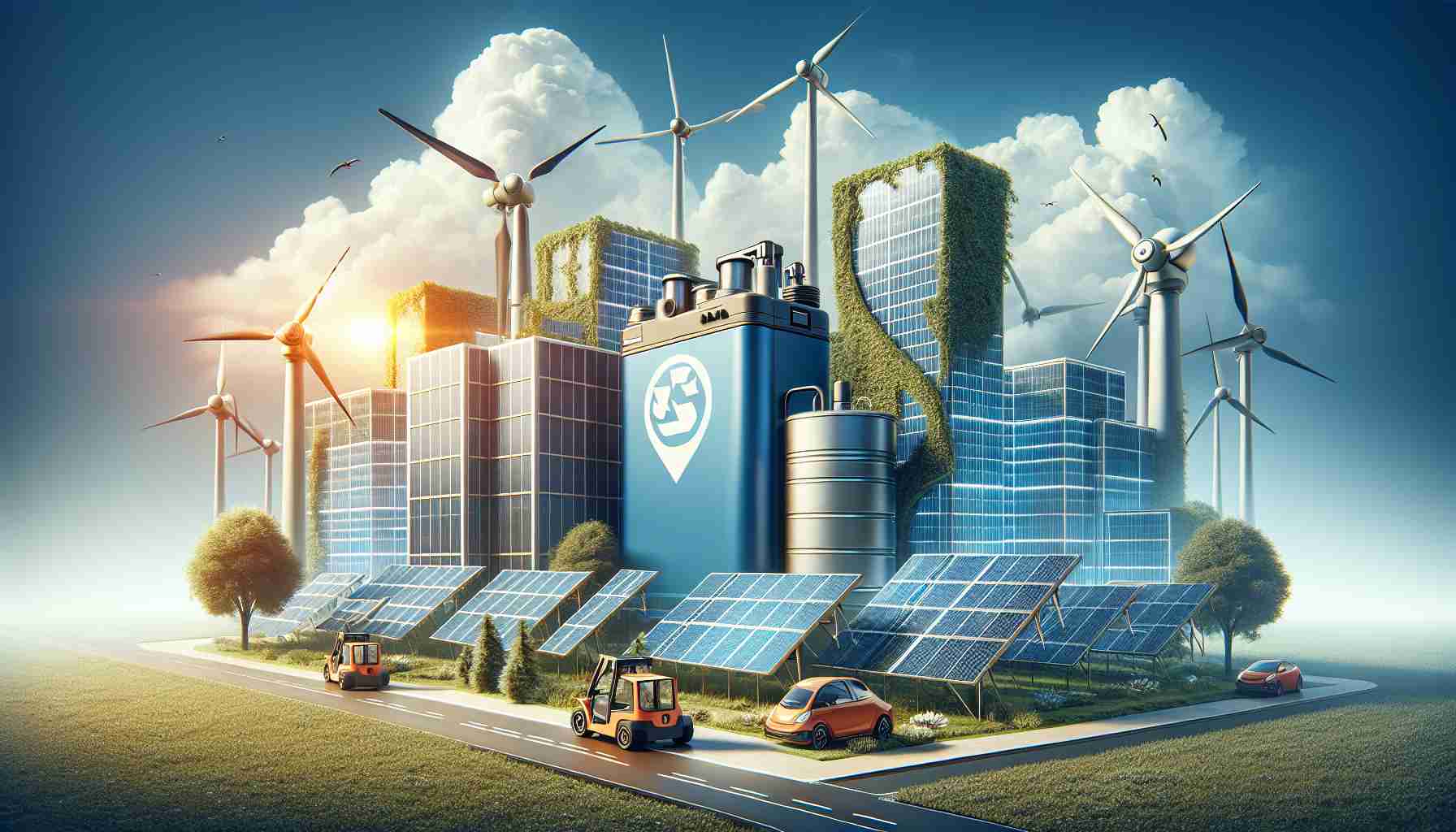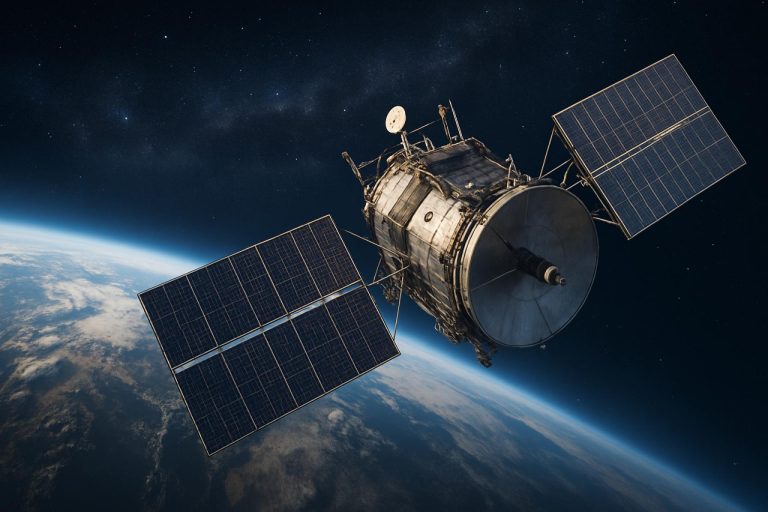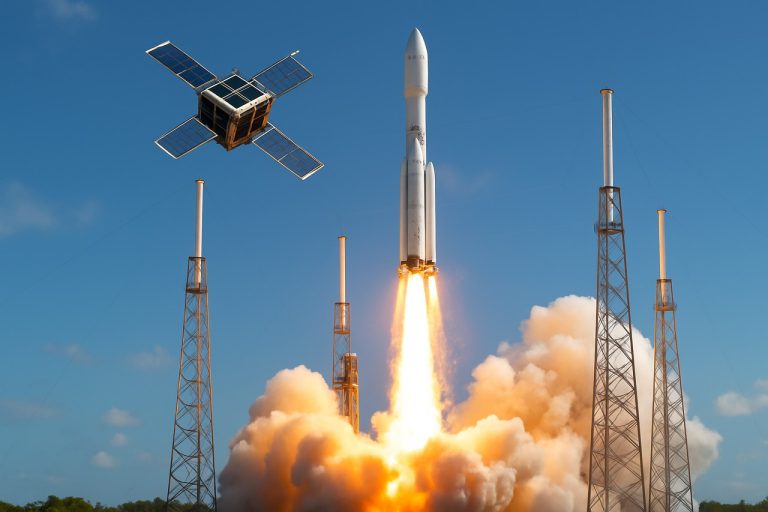
- Cal State LA and RockeTruck, Inc. are developing a portable fuel cell generator to enhance emergency power solutions.
- Funded by a $345,000 U.S. Department of Energy grant, the project focuses on creating the Mobile Fuel Cell Generator (MFCG).
- The MFCG will utilize hydrogen to produce clean electricity, starting with a prototype that generates 80 kilowatts.
- A smaller version, the MFCG Mini, will be designed for truck-bed compatibility, integrating advanced battery technology.
- This initiative aims to maintain essential services during power outages, particularly during emergencies like wildfires.
- David Blekhman emphasizes the project’s potential to uplift disadvantaged communities, especially in East Los Angeles.
- The partnership seeks to foster technological innovation and contribute to a sustainable energy future.
Imagine a world where power outages become a thing of the past, especially during critical disasters. Cal State LA is teaming up with RockeTruck, Inc. to make that vision a reality with an innovative portable fuel cell generator. Funded by a substantial $345,000 grant from the U.S. Department of Energy, this collaboration is set to redefine emergency power solutions.
The project aims to develop a Mobile Fuel Cell Generator (MFCG) that harnesses hydrogen to deliver clean electricity anywhere it’s needed. The first prototype, capable of generating an impressive 80 kilowatts, will soon evolve into a smaller, truck-bed friendly version dubbed the MFCG Mini, equipped with advanced battery technology.
This groundbreaking initiative is crucial for responding to emergencies, such as the wildfires that have plagued communities recently. With the MFCG Mini, Cal State LA and RockeTruck plan to support essential services like hydrogen fueling stations, ensuring they remain operational even when the grid fails.
As David Blekhman, a driving force behind the project, highlights, this collaboration not only propels technological innovation but also uplifts disadvantaged communities, particularly those in East Los Angeles. With enhanced systems designed for better performance, the MFCG Mini represents a significant leap toward a more reliable and resilient energy future.
Join the clean energy revolution—this partnership promises not just to transform power generation but also to empower communities across America.
Shaping the Future: How Portable Fuel Cell Generators Will End Power Outages!
Portable Fuel Cell Generator Revolution
The collaboration between Cal State LA and RockeTruck, Inc. is set to redefine emergency power solutions with the Mobile Fuel Cell Generator (MFCG) project. Beyond its initial introduction, the MFCG Mini is pushing the boundaries of portable power generation, especially during critical situations such as natural disasters and public emergencies.
New Features of the MFCG Mini
1. Advanced Battery Technology: The MFCG Mini will not only produce 80 kilowatts of power but will also feature cutting-edge battery technology that allows for more efficient energy storage and usage.
2. Hydrogen-Powered Load Balancing: This technology allows for optimal energy distribution, ensuring that power can be prioritized based on immediate needs.
3. Remote Monitoring and Control: Some models of MFCG are expected to incorporate IoT features, enabling remote control and monitoring through mobile applications.
Pricing and Market Insights
The MFCG Mini’s anticipated market entry is competitive, aiming for a retail price under $30,000, making it accessible for community organizations and emergency services. Given the increasing occurrences of severe weather and natural disasters, the market for portable power solutions is projected to grow significantly, with estimates suggesting a compound annual growth rate (CAGR) of 15% over the next five years.
Sustainability and Security Aspects
The portable fuel cell generators prioritize sustainability by utilizing hydrogen as a clean energy source. This shift is part of a larger trend in energy solutions geared towards reducing carbon footprints and reliance on fossil fuels. Security aspects also play a significant role, as these generators are designed to function in a robust manner during emergencies when traditional power supplies may fail.
Limitations and Challenges
Despite the innovative approach, challenges remain. These include:
– Hydrogen Storage Infrastructure: Widespread adoption of hydrogen fuel technology requires significant development of hydrogen production and storage facilities.
– Public Perception and Acceptance: Gaining community trust in newer technologies and shifting practices from conventional power sources can be a hurdle.
Key Questions
1. What role does hydrogen play in clean energy solutions?
Hydrogen serves as a clean fuel source that, when combined with oxygen in a fuel cell, produces electricity, heat, and water, with zero greenhouse gas emissions.
2. How does the MFCG Mini handle emergencies differently from traditional generators?
While traditional generators often rely on fossil fuels and may not function effectively during major outages, the MFCG Mini provides a sustainable and reliable power source capable of being deployed in a variety of emergency scenarios.
3. What is the impact of this project on disadvantaged communities?
The initiative aims to uplift communities by providing reliable power sources during crises and supporting infrastructure (like hydrogen fueling stations), thereby promoting resilience and improving community preparedness.
Conclusion
The partnership between Cal State LA and RockeTruck is a hallmark of innovation and community empowerment in energy solutions. The upcoming MFCG Mini could redefine how we respond to power needs in emergencies, paving the way for a sustainable and reliable future.
For more information, visit the main site: Cal State LA.



